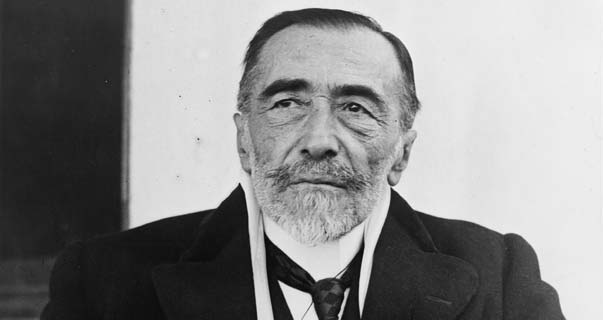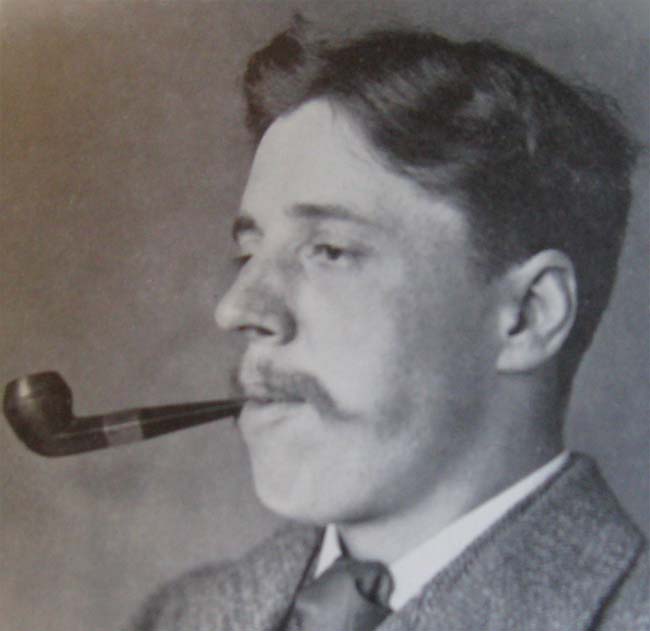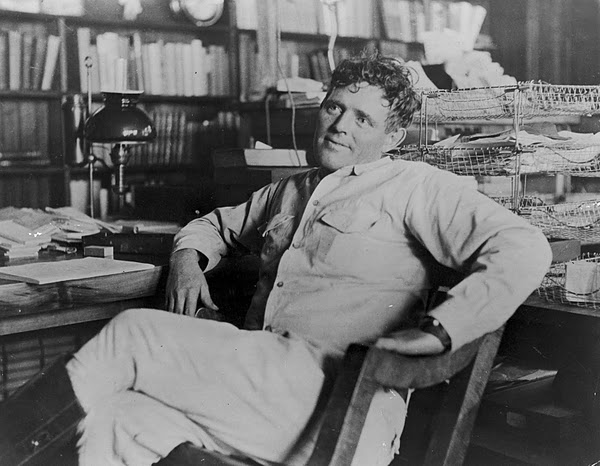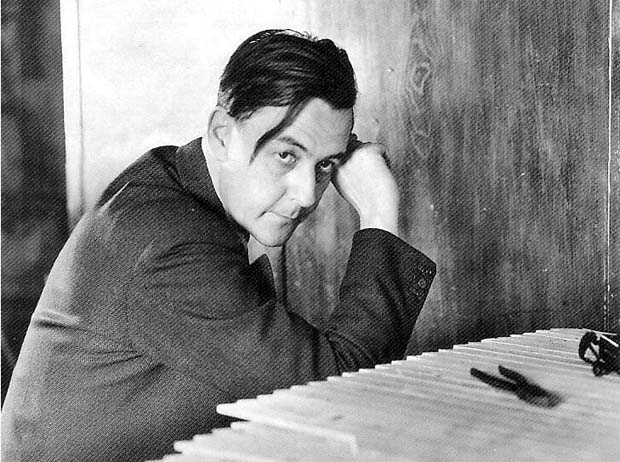(This is the sixteenth entry in the The Modern Library Reading Challenge, an ambitious project to read the entire Modern Library from #100 to #1. Previous entry: Ragtime)
 Much like today’s tawdry Hollywood movies, Lord Jim was based on a true story — back in the days when it actually meant something. On August 7, 1880, a ship called the Jeddah, on its way from Singapore to Arabia and carrying 950 Muslim pilgrims, had an accident. The British officers abandoned the ship near Cape Gardafui. But the Jeddah did not sink. Captain Clark was on his way out of the British Consulate when another captain reported that the Jeddah had been salvaged and towed. Clark got off lightly. His certificate was stripped for three years. But the Jeddah‘s first mate, Augustine Podmore Williams, received a harsher sentence.
Much like today’s tawdry Hollywood movies, Lord Jim was based on a true story — back in the days when it actually meant something. On August 7, 1880, a ship called the Jeddah, on its way from Singapore to Arabia and carrying 950 Muslim pilgrims, had an accident. The British officers abandoned the ship near Cape Gardafui. But the Jeddah did not sink. Captain Clark was on his way out of the British Consulate when another captain reported that the Jeddah had been salvaged and towed. Clark got off lightly. His certificate was stripped for three years. But the Jeddah‘s first mate, Augustine Podmore Williams, received a harsher sentence.
This tale of lost honor and irresponsible officials eluding their duties so captivated Conrad’s imagination that he began drafting a short story in a thick album bound in leather that had belonged to his grandmother. The Jeddah became the Patna. (And the Patna would show at the end of Alien 3, lest you thought that film franchise was solely Nostromo.) Zdzislaw Najder’s very large biography, Joseph Conrad: A Chronicle, informs us that Conrad kept tabs on his word count in the margins. Serializing the yarn in a magazine was the idea, and his labor on the Lord Jim prototype intersected with the completion of “Youth” — a story that also featured the well-known Charles Marlow. Yet at this stage in the Lord Jim writing, Marlow hadn’t yet found his loquacious entry point. What Conrad would not know is that Marlow would become as ubiquitous in his work as the creepy adjusters you see in today’s subdivisions who show up minutes after a fire to stake out a husked out building. While Marlow may not have been driven by the adjuster’s compulsion to itemize and sweep in, he did share the common trait of being a remarkably patient listener to a tragic tale.
After some early starts, there was a six month break. Around this time, Conrad was also at work on Heart of Darkness (yet another deck for Marlow to walk on), which appeared in three parts in Blackwood’s Magazine (and which will be discussed in a future Modern Library installment). Factor in an especially vituperative article from Eliza Orzeskowa (“The Emigration of Talent”) that accused Conrad of deserting the Polish homeland and diminishing his talents and one gets the sense that Conrad wasn’t exactly doing the happy dance around 1899.
Conrad had to go sailing on a boat (La Reine) he had purchased with his pal Stephen Crane to unlock Lord Jim‘s secret: namely, the shift from omniscient narration to Marlow, who is arguably one of the most formidable ramblers in all of literature. (Indeed, there is a strange pleasures reading Lord Jim in the 21st century and contemplating the type of audience who would sit through such a protracted tale without offering a question or an interruption. I’ve done the math here, and Marlow’s tale is probably a lot longer than Christian Marclay’s The Clock. When you factor in our short attention span age, the time investment and patience is tenfold more remarkable. Today, I have no doubt that people would be live-tweeting Marlow or checking their BlackBerries. And we haven’t even discussed bathroom breaks.) Conrad’s “long short story” of 20,000 words eventually expanded to six times the calculated length. This didn’t stop him from additional dips into continuous partial attention. He even collaborated with Ford Madox Ford on The Inheritors in early 1900.
In addition to bracing the pressure of Blackwood’s serializing Lord Jim, Conrad also faced the death of his BFF GFW Hope’s seventeen-year-old son on the high seas (with some evidence of a covered up sexual assault, thus accounting for the book’s dedication), and, like many writers then and since, tremendous financial uncertainty. The plan had been for “Tuan Jim: A Sketch” to be part of a collection, but this idea became spottier as the story mushroomed.
One can offer the theory (and biographer Jeffrey Meyers certainly has*) that Conrad needed to be oblivious to keep up with the time-consuming nature of novel writing, claiming to be just about finished when there was still a good deal of work that needed to be done. Yet Conrad plowed forward, fighting off bronchitis, malaria, and even gout. Indeed, if one isn’t humbled by the fact that Conrad wrote this sweeping masterpiece in his third learned language, there’s the impressive manner in which Conrad doggedly used a paperweight to keep down his sheets while working with an inflamed wrist.
Conrad’s grief over his good friend Crane’s untimely death on June 5, 1900 made its way into Lord Jim‘s last ten chapters. And given how these heavy feelings fueled such a heavy book, there is little doubt that Conrad had reached a point where he wanted to be done with Lord Jim, as he was to remark in a July 20, 1900 letter to John Galsworthy:
The end of L.J. has been pulled off with a steady drag of 21 hours. I sent wife and child out of the house (to London) and sat down at 9 am, with a desperate resolve to be done with it. Now and then I took a walk round the house out at one door in at the other. Ten-minute meals. A great hush. Cigarette ends growing into a mound similar to a cairn over a dead hero. Moon rose over the barn looked in at the window and climbed out of sight. Dawn broke, brightened. I put the lamp out and went on, with the morning breeze blowing the sheets of MS all over the room. Sun rose. I wrote the last word and went to the dining room. Six o’clock. I shared a piece of cold chicken with Escamillo [Conrad’s dog, named after Carmen] (who was very miserable and in want of sympathy having missed the child dreadfully all day). Felt very well only sleepy; had a bath at seven and at 8:30 was on my way to London.
The thing that gets me is how Conrad felt the need to punctuate the end of his industry with a cold piece of chicken. But Conrad would initially dismiss Lord Jim as “a lump of clay.” While Lord Jim was to be favorably received, it wasn’t exactly a blockbuster. The first batch of 2,100 copies sold out in two months. The next printing of 1,050 copies took four years. Some reviewers complained. Many raved. Henry James sent Conrad a letter of congratulations.
If I am to be truthful here, I must confess that I had to start Lord Jim a second time before I really got into Jim’s woeful adventures from Patna to Patusan. My first reading attempt pushed me to the 200 page mark, but I zoned out, Conrad’s paragraphs washing over my eyes like imposing ebbtides. At first I feared that Conrad, whose Heart of Darkness I had loved so much in high school, did for me what Thomas Pynchon does for other people when they resent not being able to finish Gravity’s Rainbow. But when I put aside some professional obligations and realized that Lord Jim required my total attentions, I found myself stirred and fascinated by Jim’s remarkable obstinacy, his failure to shake off the shame from the bulkhead accident and move on. Here’s a guy who skips town anytime some stranger brings up the Patna incident. You almost want him to go all Dustin Hoffman (as opposed to James Marsden) in Straw Dogs rather than sit there passively while others deface his honor. Jim would never be able to get away with these chicken sprints in the age of Google.
Other characters tolerate this curious strain of romantic heroism. Poor Marlow, who you figure should know better, gets Jim a gig in the most munificent manner possible, pointing out to the troubled young hipster (sorry, but I can’t help but think of emo layabouts when imagining Jim in my mind’s eye) just how much he’s put his ass on the line:
“Look at the letter I want you to take. I am writing to a man of whom I’ve never asked a favour, and I am writing about you in terms that one only ventures to use when speaking of an intimate friend. I make myself unreservedly responsible for you. That’s what I am doing. And really if you will only reflect a little what that means…”
Jim gets the gig, offering a jolly “Jove!” in response to this generosity. (It’s worth noting that Jim is very big on “Jove!” I’m guessing that “Jove!” was the “Fuck yeah!” of its day.** And, on second thought, I don’t blame Marlow too much. If I was in the company of an exuberant lad who liked to yell “Jove!” all the time, I’d probably buy him a few beers with the remaining shekels in my reticule.) But he blows the job (and costs the man his business) when the second engineer of the Patna shows up. “I couldn’t stand the familiarity of the little beast,” writes Jim back to Marlow.
But given how Conrad offers us so many eccentric characters of the sea, is Jim’s bitching really called for? Especially when Jim’s stolid near Bartleby-like temperament causes people he knows to die after Stein appoints Jim as manager of his trading post in Patusan. We see any number of idiosyncratic types throughout Lord Jim: the German skipper who demands liquor by the light of the Patna‘s binnacle, the captain who is part of the Patna investigation and suicidally throws himself overboard as though “he had suddenly perceived the gates of the other world flung open wide for his reception,” Marlow’s brief chief mate Selvin who, upon not receiving a letter from his wife, “would go quite distracted with rage and jealousy, lose all grip on the work, quarrel with all hands, and either weep in his cabin or develop such a ferocity of temper as all but drove the crew to the verge of mutiny,” the butterfly-collecting merchant Stein, and the monstrous buccaneer Gentleman Brown who forces Jim’s hand in Patusan. Given his close proximity to goofballs and mountebanks, one would think that Jim would have something bigger on his mind than his own fragile ego.
If Jim is considered “a solitary man confronted by his fate,” then it interesting how he attempts to reconcile his honor with Cornelius, the “unspeakable” man embezzling and appropriating from Stein whom Jim replaces in Patusan. Cornelius treats his station and his girl quite unwell. But can we commend Jim for trying to be civil with Cornelius when he asks if he is unwell? Perhaps. But doesn’t Cornelius, for all of his odious qualities, carry some slim honor? Sure, the man has bamboozled Stein. He’s clearly stealing more than a few office supplies. But there’s something equally absurd to Jim in the way Cornelius offers to smuggle Jim out through the river for a mere eighty dollars. Cornelius certainly has a point when he declares to Marlow, “What did Mr. Stein mean sending a boy like that to talk big to an old servant? I was ready to save him for eighty dollars. Only eighty dollars. Why didn’t the fool go? Was I to get stabbed myself for the sake of a stranger?”
In light of the “Look at that wretched cur” farcical business at the Patna inquiry, whereby Marlow remarks on a weaving yellow dog and the oversensitive Jim believes that Marlow is talking shit about him, what makes Cornelius’s griping about sacrifice any less ignoble than Jim’s? And in disseminating Jim’s tale of dishonor to unknown listeners in the shadows, isn’t Marlow also sullying Jim’s honor? Certainly not in our eyes, if we look upon the tale from the outside. But Jim would most certainly think so, if he knew the full extent of Marlow’s goodnatured gossiping. We also have no idea how reliable Marlow is — especially since we are getting boatloads of hearsay. In fact, only “one privileged man” gets to hear the final word of the story, which is mostly second-hand from a fairly unreliable source.
Perhaps as Marlow says, the problem resides in the externals:
The conquest of love, honour, men’s confidence — the pride of it, the power of it, are fit materials for a heroic tale; only our minds are struck by the externals of such a success, and to Jim’s success there were no externals.
* — You may have observed that I haven’t really probed into Joseph Conrad’s bad behavior in this Modern Library installment. Given that there are three more Conrad volumes on the list, I’m thinking I’ll probably be addressing Conrad’s boorishness at some future point. However, since we’re on the subject, I feel compelled to point out that, should you check out Jeffrey Meyers’s Joseph Conrad: A Biography from the Mid-Manhattan branch of the New York Public Library, you will find this amusing marginalia on Page 187 suitably illustrating the author vs. work predicament:
Annotator 1: Ingrate! mistreats his wife I am trying to find something beneficial
Annotator 2: His writing!
Annotator 1: Constantly borrowing money
Annotator 2: So what?
** — Aside from “Jove,” “tumult” is another word Conrad is quite fond of — for abundantly clear reasons. I am also highly inclined to devise some Brooklyn answer to “tiffin” that I can work into my life and vernacular.
Next Up: Elizabeth Bowen’s The Death of the Heart!


 In 1975,
In 1975, 
 I am fairly certain that I found The Old Wives’ Tale compelling for reasons that Arnold Bennett did not intend. After my great excitement with Jack London, Bennett was something of a letdown, reading more like fossilized culch than a lively adventure from the 20th century, although I experienced a great deal of pleasure as characters began to die and as they became needlessly blamed for other deaths. Consider the manner in which Sophia, assigned to watch over her bedridden father, sneaks away for a few minutes to chat with the strapping Gerald Scales. When she returns, something terribly odd occurs:
I am fairly certain that I found The Old Wives’ Tale compelling for reasons that Arnold Bennett did not intend. After my great excitement with Jack London, Bennett was something of a letdown, reading more like fossilized culch than a lively adventure from the 20th century, although I experienced a great deal of pleasure as characters began to die and as they became needlessly blamed for other deaths. Consider the manner in which Sophia, assigned to watch over her bedridden father, sneaks away for a few minutes to chat with the strapping Gerald Scales. When she returns, something terribly odd occurs:
 In June 1902, Cosmopolitan published
In June 1902, Cosmopolitan published 
 Reading Henry Green’s Loving is a bit like going through a valise that a hardcore neat freak has spent many years packing for your once-in-a-decade vacation. You need to extract the chinos for that last summer blowout, but will your unseen friend berate you if you rustle the crisp blue oxford shirt from that fixed and implacable perch just above those promising pants? What Green has given us is a delicate book, difficult to unpack in a thousand words. It is so marvelous that you could spend a lifetime talking about it (certainly many have spent lifetimes teaching it). On the other hand, compared to Finnegans Wake (a Modern Library obligation so massive that I have started reading it early,
Reading Henry Green’s Loving is a bit like going through a valise that a hardcore neat freak has spent many years packing for your once-in-a-decade vacation. You need to extract the chinos for that last summer blowout, but will your unseen friend berate you if you rustle the crisp blue oxford shirt from that fixed and implacable perch just above those promising pants? What Green has given us is a delicate book, difficult to unpack in a thousand words. It is so marvelous that you could spend a lifetime talking about it (certainly many have spent lifetimes teaching it). On the other hand, compared to Finnegans Wake (a Modern Library obligation so massive that I have started reading it early,